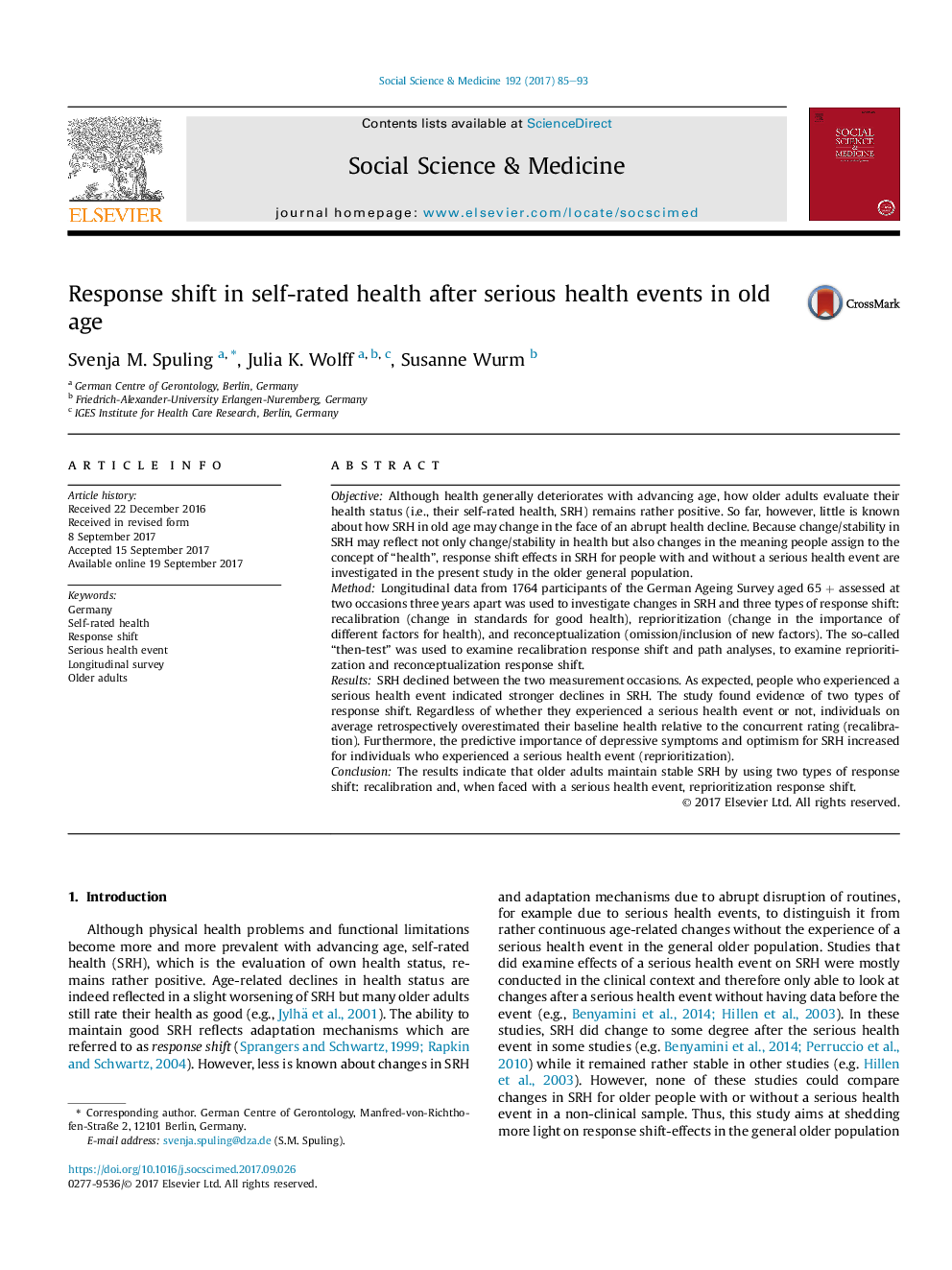| کد مقاله | کد نشریه | سال انتشار | مقاله انگلیسی | نسخه تمام متن |
|---|---|---|---|---|
| 5046368 | 1475977 | 2017 | 9 صفحه PDF | دانلود رایگان |
- The study examined response shift in self-rated health in older adults.
- Stronger declines in self-rated health were found after a serious health event.
- On average, all individuals tended to retrospectively overestimate their health.
- Reprioritization response shift was only present after facing a serious health event.
- Older adults use two types of response shift to maintain stable self-rated health.
ObjectiveAlthough health generally deteriorates with advancing age, how older adults evaluate their health status (i.e., their self-rated health, SRH) remains rather positive. So far, however, little is known about how SRH in old age may change in the face of an abrupt health decline. Because change/stability in SRH may reflect not only change/stability in health but also changes in the meaning people assign to the concept of “health”, response shift effects in SRH for people with and without a serious health event are investigated in the present study in the older general population.MethodLongitudinal data from 1764 participants of the German Ageing Survey aged 65Â +Â assessed at two occasions three years apart was used to investigate changes in SRH and three types of response shift: recalibration (change in standards for good health), reprioritization (change in the importance of different factors for health), and reconceptualization (omission/inclusion of new factors). The so-called “then-test” was used to examine recalibration response shift and path analyses, to examine reprioritization and reconceptualization response shift.ResultsSRH declined between the two measurement occasions. As expected, people who experienced a serious health event indicated stronger declines in SRH. The study found evidence of two types of response shift. Regardless of whether they experienced a serious health event or not, individuals on average retrospectively overestimated their baseline health relative to the concurrent rating (recalibration). Furthermore, the predictive importance of depressive symptoms and optimism for SRH increased for individuals who experienced a serious health event (reprioritization).ConclusionThe results indicate that older adults maintain stable SRH by using two types of response shift: recalibration and, when faced with a serious health event, reprioritization response shift.
Journal: Social Science & Medicine - Volume 192, November 2017, Pages 85-93
